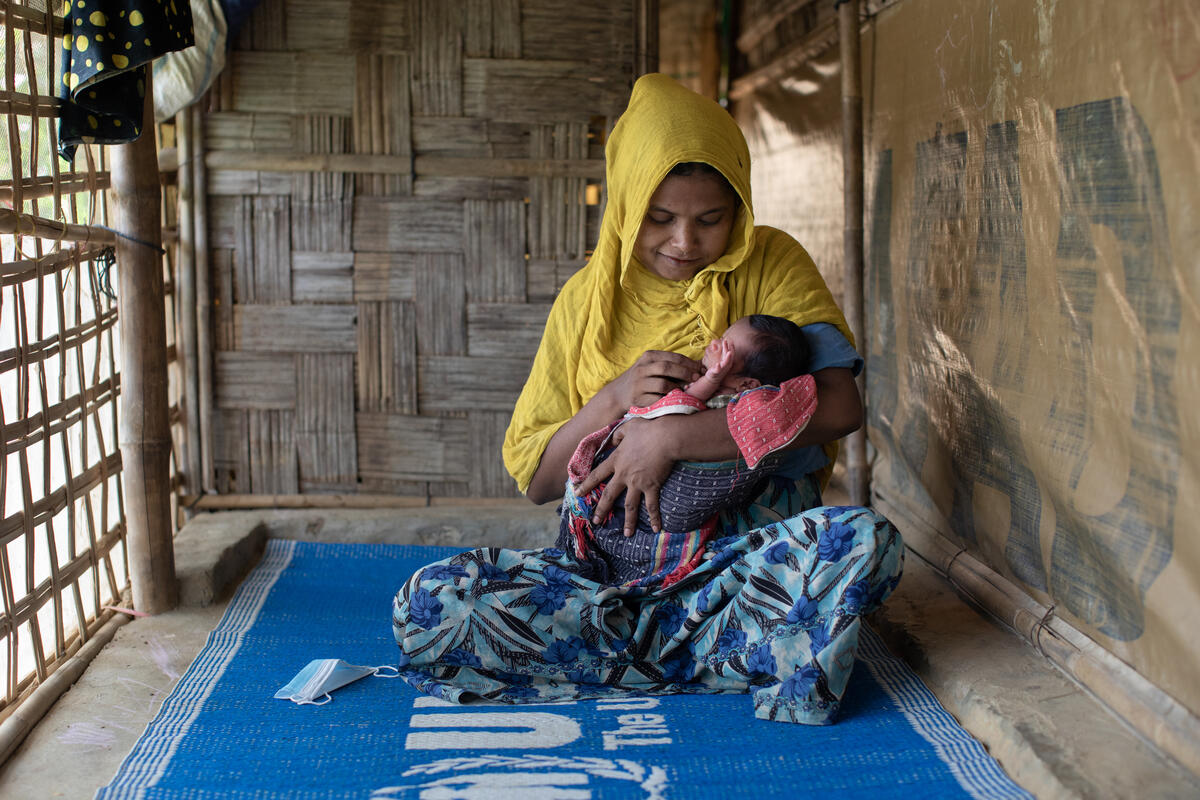Donors pledge record $358 million for UNHCR in 2004
Donors pledge record $358 million for UNHCR in 2004
8 December 2003
GENEVA - More than 30 donor countries today confirmed record pledges of US$358 million for UNHCR programmes in 2004. This included $324 million in pledges made during the refugee agency's annual pledging conference in Geneva today, and $34 million announced earlier for the coming year.
"This is a good start and it shows our efforts to widen our donor base and increase the predictability of our funding are starting to bear fruit," said Anne Willem Bijleveld, UNHCR's Director of Communications and Information, the unit responsible for donor relations. "In particular, we are pleased to welcome some East European countries who will soon join the European Union, as well as countries from the Gulf region, as newcomers to UNHCR's pledging conference".
Bijleveld warned, however, that consistent efforts from donors would be necessary to help UNHCR reach its overall funding target of $1 billion next year, adding that the agency was far from "out of the woods." Nevertheless, the record initial figure pledged at today's conference allows for more predictability in UNHCR's planning and work and gives it a good head start for 2004.
Reflecting UNHCR's efforts for a wider donor base, a total of 33 funding announcements were made, five more than last year. Among those making pledges at the annual conference for the first time were Hungary, Slovakia, Kuwait, Qatar and Cyprus. Other main contributors included the United States, Sweden, the Netherlands, Norway, Denmark, Switzerland, the United Kingdom and Belgium. Pledges made prior to the conference also included a contribution by the European Commission, as well as from Germany, Hungary, Slovenia and Estonia.
This year's early pledges surpass last year's conference total of $317 million, and represent nearly 36 percent of UNHCR's $1 billion budget as outlined in the agency's "2004 Global Appeal." The amount includes $954.9 million under the annual regular budget, and more than $57 million in supplementary programmes, mainly for the Sudanese and Liberian refugee situations. It is expected, however, that additional supplementary appeals will be launched next year as new needs arise.
The refugee agency also plans to request additional funds to support refugee return and assistance programmes for displaced persons in Iraq from donors and the trust funds established to aid the country.
High Commissioner Ruud Lubbers alerted donors attending the conference of possible new needs in the coming year as UNHCR continues its efforts to find lasting solutions for various long-time refugee populations.
"For 2004, we are already considering the possibility that conditions will allow for further repatriations in a number of African countries," Lubbers said. "These would require additional supplementary programmes" said Lubbers in his opening address to the pledging conference.
Several donor representatives confirmed their governments' continued support for UNHCR and its work to protect and assist refugees worldwide. Several lauded the High Commissioner's innovative efforts to broaden the agency's donor base, noting that it has been much too narrow in the past when fewer than 10 governments accounted for the vast majority of UNHCR's funds.
One speaker also noted that a small number of mainly developing countries are hosting the bulk of the world's refugees.
Several speakers expressed concern over the increasingly hostile environment in which humanitarians must work today. Referring to the attack on the UN's Baghdad headquarters in August and the recent killing of a UNHCR staff member in Afghanistan, many paid tribute to those who work in some of the most remote, difficult and dangerous places in the world.
Many donors also supported the High Commissioner's call for UNHCR to receive a bigger share of UN's Regular Budget. Of UNHCR's $954.9 million annual budget, only 2.5% comes from the regular UN budget. The rest is financed by voluntary contributions to UNHCR from donor states and, on a smaller scale, from private contributions.
Based on UNHCR's experience from previous years, Lubbers warned that the agency still has to be "prepared for a situation where the annual budget is not fully funded." This year, UNHCR received some $100 milion less than the annual budget that had been approved in 2002 by the 64 nations that make up its governing Executive Committee. Lubbers oversaw a series of reductions, including administrative and support costs, during the year that brought expenditures into line with income.
By region, requirements in 2004 include $331 million for Africa; $157.6 million for Central and Southwest Asia, North Africa and the Middle East; $101.5 million for Europe; $47.6 million for Asia and the Pacific; and $24.8 million for the Americas.








